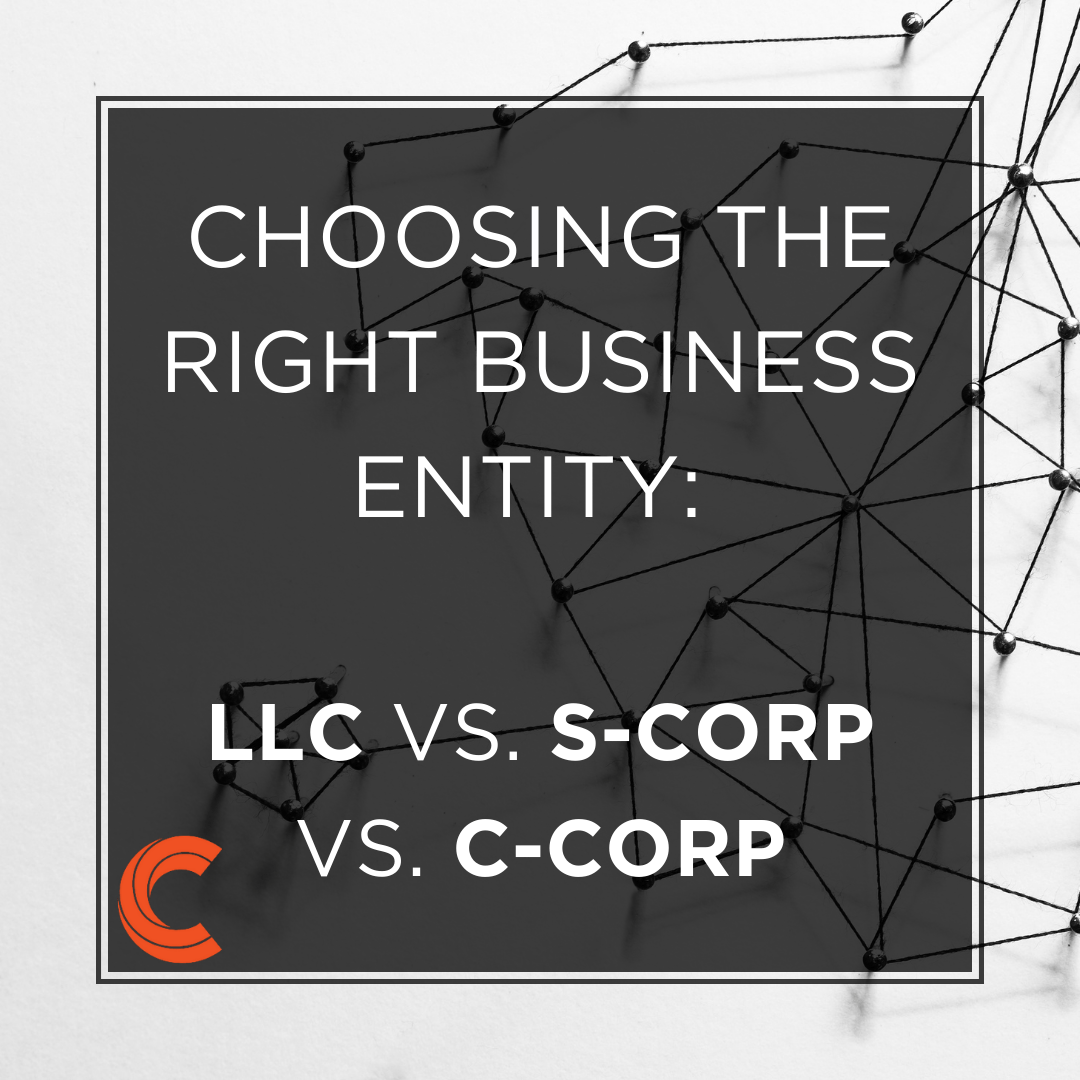Choosing the right business structure is a crucial decision for any entrepreneur. It impacts everything from taxes and liability to fundraising and future growth plans. Three common business entities for small and medium-sized businesses are Limited Liability Companies (LLCs), S corporations (S-Corps), and C corporations (C-Corps). Each offers distinct advantages and disadvantages.
Understanding the Basics
- Sole Proprietorship: This is the simplest structure, where the business and owner are legally the same. It offers ease of setup but exposes the owner to unlimited personal liability for business debts.
Limited Liability Company (LLC)
- Formation: Easy to form, typically requires filing articles of organization with the state.
- Liability: Protects owners’ personal assets from business debts. Owners are only liable for their investment in the LLC.
- Taxes: LLCs are considered “pass-through” entities. Profits and losses pass through to the owners’ personal tax returns, avoiding double taxation.
- Management: Managed by members, who can be the owners themselves or appointed managers. Operating agreements define ownership percentages, voting rights, and management structure.
- Ownership: Ownership is flexible and can be structured with multiple members. Profits and losses are shared according to ownership percentages.
S Corporation (S-Corp)
- Formation: More complex than LLCs, requires filing articles of incorporation and meeting specific IRS requirements, including limitations on ownership and shareholder types.
- Liability: Offers limited liability protection for owners similar to LLCs.
- Taxes: S-Corps avoid double taxation by electing S corporation status with the IRS. Profits and losses pass through to shareholders’ personal tax returns. However, S-Corps require reasonable salaries to be paid to shareholder-employees, which are subject to payroll taxes.
- Management: Managed by a board of directors elected by shareholders. Shareholders vote on major decisions.
- Ownership: Limited to 100 shareholders who must be U.S. citizens or permanent residents. Ownership structure is simpler in comparison to C-Corps.
C Corporation (C-Corp)
- Formation: Most complex structure, requires filing articles of incorporation and adhering to corporate formalities, such as board meetings and shareholder meetings.
- Liability: Provides strong limited liability protection for owners, similar to LLCs and S-Corps.
- Taxes: C-Corps are subject to double taxation. The corporation pays income tax on its profits, and then shareholders pay personal income tax on dividends received from the corporation.
- Management: Managed by a board of directors elected by shareholders. Shareholders vote on major decisions. Offers greater flexibility in raising capital through stock issuance.
- Ownership: No limit on the number of shareholders. Ownership structure can be complex with different classes of stock offering varying rights.
Choosing the Right Structure
Here are some key factors to consider when choosing between an LLC, S-Corp, and C-Corp:
- Liability Protection: All three structures offer limited liability protection.
- Taxation: LLCs and S-Corps avoid double taxation, while C-Corps are subject to it.
- Management Structure: LLCs offer flexibility, while S-Corps and C-Corps have more formal structures.
- Ownership Structure: LLCs and S-Corps have limitations on ownership, while C-Corps offer more flexibility.
- Growth Plans: C-Corps are better for businesses seeking significant investment or going public.
Seeking Professional Help
Choosing the right business entity can be complex. Business lawyers at Carbon Law Group can assist you with:
- Understanding the pros and cons of each structure
- Selecting the entity that best fits your business goals
- Completing the necessary filing procedures
- Ensuring compliance with legal and tax regulations
Conclusion
The right business entity can significantly impact your business’s success. By considering these factors and seeking professional guidance, you can make an informed decision that supports your long-term vision. Remember, there’s no “one-size-fits-all” answer. The best structure depends on your specific circumstances and goals.





